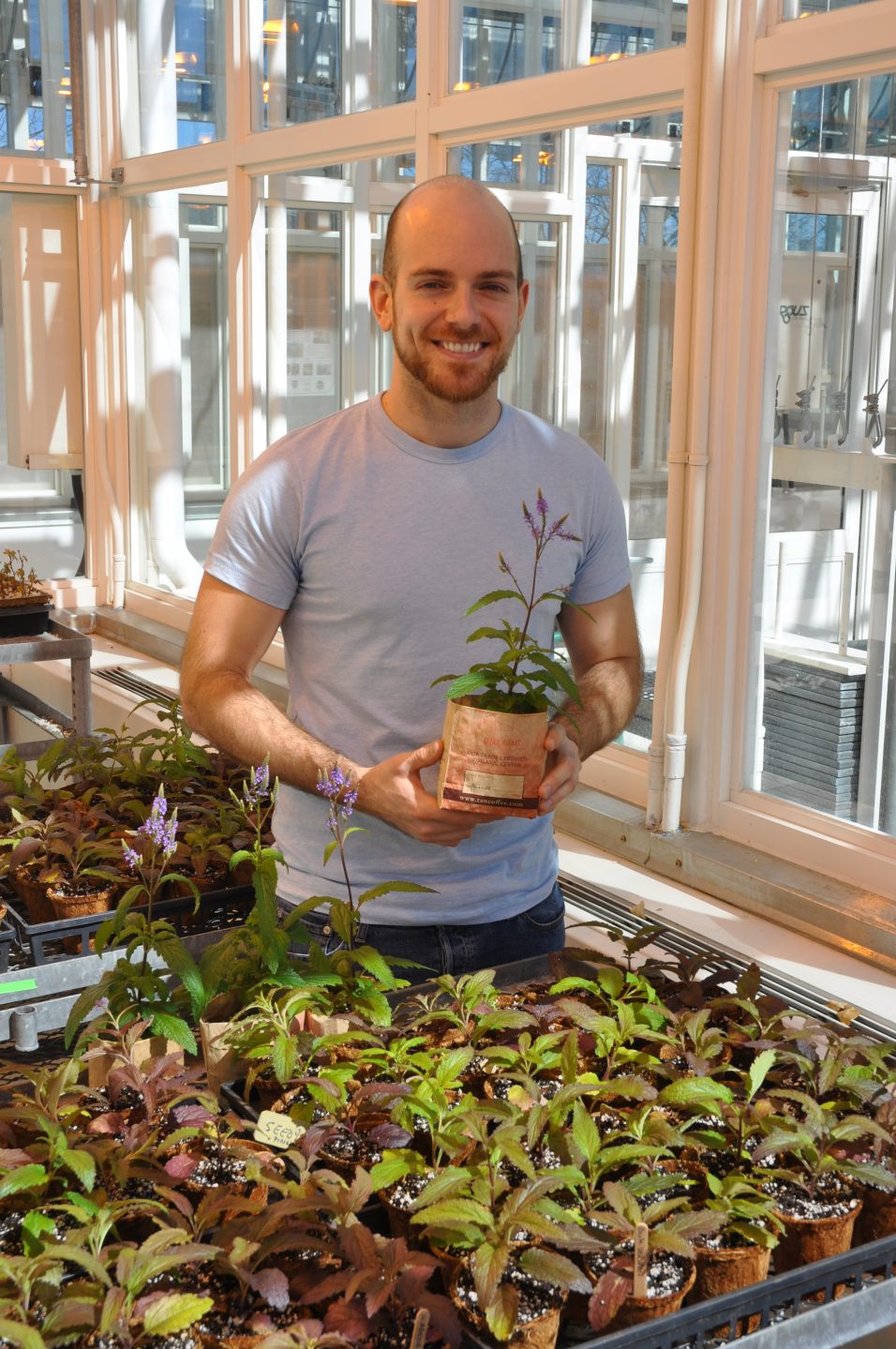What’s Growing at the K.C. Irving Environmental Science Centre: Blue Vervain
By Samuel Jean, Seed Bank Intern
Happy spring! I started working at the seed bank last August, and I am happy to be here to see spring in the Annapolis Valley. During the last months, I collected seeds from native populations, assessed their germination rates, propagated endangered species, and offered plant tissue culture training to students. I’m Acadian, and I grew up in Saint-Isidore, New Brunswick. I started gardening in my sandbox when I was 4 years old and I was known by my peers as a nature enthusiast through primary and secondary school. While completing a bachelor’s degree in sustainable development and coastal zones at Université de Moncton, I did co-op internships about wind farm impacts on wetlands, oyster farming, and biodiversity conservation. Once my degree was completed, I started working on a regional climate change adaptation project. Plants and warmer climate were calling me while I was working on coastal flooding and erosion in northeast New Brunswick. I knew that the Annapolis Valley region was the perfect place to let go my gardening ambitions.
If you are a gardener like me, you are probably already excited about this year’s gardening season. With the temperatures getting warmer and the days getting longer, I can’t wait to see native plants emerge from under their leaf mulch. Are you looking for a new native plant to introduce to your garden this year? Have you ever heard about blue vervain (Verbena hastata)? Blue vervain is a perennial that grows up to 5 feet tall and produces showy spikes of small blue-purple flowers. Blooming for about six weeks in August and September, it attracts bees, butterflies and birds. Well adapted to local environmental conditions, this stunning low maintenance native plant will certainly charm you. It has been one of my favorites since I introduced it to my home garden in 2013. It is tall and narrow, so planting many together will produce a stronger visual impact than having a single plant. In suitable sites, it will produce seedlings that you can share with your friends, but do not be scared, seedlings are easy to remove if too abundant.
The K.C Irving Environmental Centre Café is now selling local blue vervain seeds that were collected last fall from a wild population growing in Hants County. Some of the seeds were donated to the Friends of the Acadian Forest Society volunteers and sowed in the Environmental Centre’s greenhouse last January. They germinated abundantly and the volunteers will be giving away the precious plants during the Seedy Saturday event that will be held at the Wolfville Farmer’s Market on Saturday April 13 from 8:30am to 1:00pm. Blue vervain seed packets will be available by donation during the event as well. Prepared now, seeds will be ready to be sown outdoors after the last spring frost! Germination instructions are included with the seeds. By growing native plants in your garden, you will support biodiversity and other native species.
For more information about why growing native plants matters, visit the Canadian Wildlife Federation website: cwf-fcf.org/en/news-features/articles/why-grow-native-plants.html
To learn more about the Acadia Seed Bank, visit kcirvingcentre.acadiau.ca/seed-and-tissue-bank-programs.html.
If you want to get involved in Acadia Seed Bank activities and participate in next fall’s seed collections, send an email to seedbank@acadiau.ca.
Harriet Irving Botanical Gardens
Acadia University
botanicalgardens.acadiau.ca
Photo: Samuel Jean, Acadia Seed Bank intern, holding one of the blue vervain you could receive on April 13 at Wolfville Farmer’s Market
